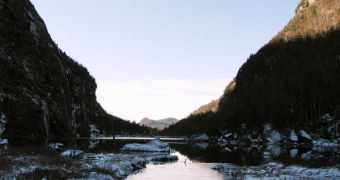According to a new report released on Thursday by the International Union for Conservation of Nature, some 869 species of plants and animals have gone extinct in the past 500 years, with an additional 17,000 more now at risk of disappearing as well. Additionally, the paper underlines the fact that the world's governments will fail to complete a promise they made in 2002, when they said that they would give their best to maintain biodiversity and an abundance of species on the planet. The program ends in 2010, but, even if, starting today, authorities around the globe would take the appropriate measures, the objective will still be missed.
“We don't want to make a choice between nature and the economy; we just want to bring nature to the same level when you have to take a decision. Jobs are important but not jobs to the detriment of nature. We have done that too much and look where we have arrived,” the Editor of the new report, Jean-Christophe Vie, told Reuters in a telephone interview from Switzerland. He also mentioned that, in addition to the 869 species that had already disappeared in the past five centuries, 290 more were at that point critically endangered, or maybe even extinct.
Of these 16,928 species that are currently on the brink of completely disappearing, about 33 percent, or one in three, are amphibians, about a quarter of all mammals, as well as one in eight birds. The new study, which uses data from the IUCN Red List of endangered and extinct animals, also shows that, between 2004 and 2009, the number of extinct species climbed from 784 to 869, which means that 85 species disappeared in just five years. At this rate, the report adds, the situation could turn devastating for ecosystems around the world in only a few decades.
Experts also report that the number they give for extinct species is “a gross underestimate, but it does provide a useful snapshot of what is happening to all forms of life on Earth. It's much more severe than the economic crisis or the bank crisis. You can lose a core industry but you can rebuild one. In nature, if you lose it, you lose it, and you're losing a lot of capital that cannot be replaced,” Vie added over the phone. “The main problem every day is not to find a job, it's to find food, [...] and in most places this comes from biodiversity, from nature, from fish and plants.”

 14 DAY TRIAL //
14 DAY TRIAL //